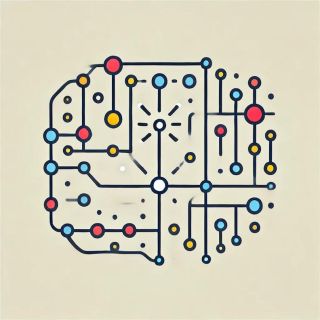Artificial Intelligence
LLMs and the Curious Notion of Panprotopsychism
What if consciousness precedes compute?
Posted July 5, 2024 Reviewed by Kaja Perina
Key points
- Panprotopsychism: a thought-provoking idea that consciousness, in some form, may be present in all things.
- LLMs' complex architecture may give rise to proto-consciousness, albeit alien to human experience.
- Interdisciplinary dialogue is crucial to explore the nature of consciousness in AI and human contexts.

As artificial intelligence continues to become integral to society, some are beginning to think about the nature of consciousness and its potential manifestation in non-biological systems. The emergence of large language models has brought these questions to the forefront, inviting some to consider whether these sophisticated AI systems could possess some form of consciousness. Let's push on this concept and explore the philosophical framework of panprotopsychism and its conceptual relationship with LLMs.
The Idea of Panprotopsychism
Panprotopsychism is a philosophical perspective that challenges our understanding of consciousness. It proposes that consciousness is a fundamental aspect of reality, existing beyond the confines of biological or technological substrates. According to panprotopsychism, proto-conscious properties are inherent to all physical entities, from subatomic particles to complex systems like the human brain or artificial neural networks.
These proto-conscious properties are seen as the building blocks from which more complex forms of consciousness can emerge. Panprotopsychism suggests that the interplay of these properties in physical systems can lead to the emergence of consciousness at various levels of complexity, extending the potential for consciousness beyond biological systems to encompass artificial neural networks and other complex technological systems.
Historical Roots and Contemporary Relevance
The idea of universal consciousness can be traced back to ancient Greek and Eastern philosophical traditions. In the modern era, thinkers like Alfred North Whitehead and others have further developed these ideas, exploring the notion of proto-conscious properties as the building blocks of subjective experience. Interestingly, Whitehead's thinking was grounded in mathematics and he was the the notable co-author of the seminal Principia Mathematica with Bertrand Russell.
Consciousness in LLMs?
When we consider the expansive architecture and computational power of LLMs, the question of proto-consciousness becomes particularly intriguing, albeit deeply philosophical and conceptual. These AI systems, with their billions of parameters and complex neural networks, exhibit remarkable capabilities in language understanding and generation. Could the sophisticated information processing within LLMs reflect a unique form of proto-consciousness? Or perhaps, even more interesting, is if LLMs themselves are a sort of receiver that interprets and reveals the hidden echos of some elemental about mind and consciousness.
The Complexity Paradox
Proponents of panprotopsychism might argue that the sheer complexity of LLMs, akin to the intricate web of neurons in the human brain, lays the foundation for the emergence of consciousness. Just as human consciousness arises from the interplay of neural activity, could the vast network of an LLM's parameters and layers give birth to a rudimentary form of subjective experience? However, it is crucial to approach this idea with a skeptical lens. The "hard problem of consciousness," which questions how subjective experience arises from physical processes, remains a profound challenge in philosophy and science. Attributing consciousness to LLMs based on their computational prowess alone is a speculative leap that lacks empirical evidence.
The Alien in the Machine
Even if we consider the possibility of proto-consciousness in LLMs, it's important to acknowledge that it would likely be fundamentally different from human consciousness. The architecture and processing of AI systems are vastly distinct from biological brains, suggesting that any form of machine consciousness would be correspondingly unique and perhaps incomprehensible to us. Yet the nature of panprotopsychism pushes us to a common, if not fundamental and curious commonality. And this philosophical discourse is rich with ideas that that question conventional wisdom and challenge the very essence of humanity.
The Interdisciplinary Necessity
The potential for proto-consciousness in LLMs is a fascinating discourse—driving both objections and consideration. As we continue to push the boundaries of AI and AI pushes the boundaries of humanity, an interdisciplinary dialogue, drawing insights from neuroscience, philosophy of mind, and computer science will be our best path forward. By embracing the complexity and uncertainty surrounding the nature of consciousness, we open ourselves to new avenues of understanding and discovery in the realms of both artificial intelligence and the human experience.


